February 23, 2018 •
US House Bill Seeks to Regulate Presidential Inaugural Committee Spending
A bill introduced this month in the U.S. House of Representatives would require presidential inaugural committees to file disbursement reports with the Federal Election Commission. The initial report would be due 90 days after the date of the presidential inaugural […]
 A bill introduced this month in the U.S. House of Representatives would require presidential inaugural committees to file disbursement reports with the Federal Election Commission. The initial report would be due 90 days after the date of the presidential inaugural ceremony, with subsequent reports due not later than 60 days after each date by which the committee makes disbursements in an aggregate amount of $100,000 or more.
A bill introduced this month in the U.S. House of Representatives would require presidential inaugural committees to file disbursement reports with the Federal Election Commission. The initial report would be due 90 days after the date of the presidential inaugural ceremony, with subsequent reports due not later than 60 days after each date by which the committee makes disbursements in an aggregate amount of $100,000 or more.
House Resolution 5008 also prohibits committees from disbursing funds for purposes unrelated to the inauguration of the president. If any leftover funds of the committee remain available at the time of the termination of the committee, the committee must donate those funds to a 501(c)(3) of its choice.
Rep. Kurt Schrader, who introduced the legislation, said in a press release, “We have laws that regulate campaign finance and political action committees. But there is nothing on the books to dictate how money for the presidential inaugural committee, which is raised under the name of the president of the United States, can or cannot be spent. That’s wildly unacceptable.”
February 16, 2018 •
NYCU Video Digest – February 16, 2018
Coming to you again with the fastest 2 1/2 minutes in campaign finance, lobbying and political compliance news you can use in this weeks video digest.
Coming to you again with the fastest 2 1/2 minutes in campaign finance, lobbying and political compliance news you can use in this weeks video digest.
February 12, 2018 •
Federal Lobbyist Bundling Disclosure Threshold Increased to $18,200
Today, the Federal Election Commission (FEC) published its price index adjustments for expenditure limitations and the federal lobbyist bundling disclosure threshold. The lobbyist bundling disclosure threshold has increased for 2018 from $17,900 to $18,200. This threshold amount is adjusted annually. […]
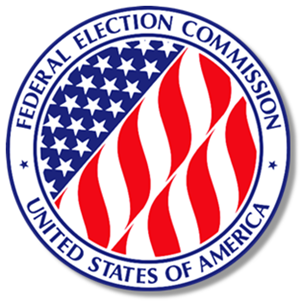 Today, the Federal Election Commission (FEC) published its price index adjustments for expenditure limitations and the federal lobbyist bundling disclosure threshold.
Today, the Federal Election Commission (FEC) published its price index adjustments for expenditure limitations and the federal lobbyist bundling disclosure threshold.
The lobbyist bundling disclosure threshold has increased for 2018 from $17,900 to $18,200. This threshold amount is adjusted annually.
Federal law requires authorized committees of federal candidates, leadership political action committees (PACs), and political party committees to disclose contributions bundled by lobbyists and lobbyists’ PACs.
Additionally, the FEC published its adjusted Coordinated Party Expenditure Limits for political parties for 2018.
February 9, 2018 •
Commissioner Goodman Resigns from FEC
On February 7, Commissioner Lee E. Goodman submitted his resignation from the Federal Election Commission (FEC) to the White House. The effective date of his resignation is February 16. Goodman, who joined the FEC in 2013 and was chairman in […]
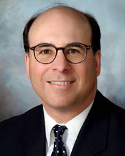 On February 7, Commissioner Lee E. Goodman submitted his resignation from the Federal Election Commission (FEC) to the White House.
On February 7, Commissioner Lee E. Goodman submitted his resignation from the Federal Election Commission (FEC) to the White House.
The effective date of his resignation is February 16.
Goodman, who joined the FEC in 2013 and was chairman in 2014, intends to practice law with the law firm Wiley Rein LLP in Washington, DC, according to an FEC press release.
February 6, 2018 •
Comment Period for FEC Rulemaking Proposal Concerning Multistate Independent Expenditures and Electioneering Communications Ends March 30
On March 30, the public comment period will end for proposed Federal Election Commission (FEC) rulemaking concerning independent expenditures by candidates and reporting of independent expenditures and electioneering communications relating to presidential primary elections. The covered independent expenditures and electioneering […]
 On March 30, the public comment period will end for proposed Federal Election Commission (FEC) rulemaking concerning independent expenditures by candidates and reporting of independent expenditures and electioneering communications relating to presidential primary elections.
On March 30, the public comment period will end for proposed Federal Election Commission (FEC) rulemaking concerning independent expenditures by candidates and reporting of independent expenditures and electioneering communications relating to presidential primary elections.
The covered independent expenditures and electioneering communications are specific to those publicly distributed in multiple states and not referring to any particular state’s primary election.
On January 29, the announcement of these proposed rulemakings was published in the Federal Register. Comments may be submitted directly to the FEC’s website.
January 2, 2018 •
FEC Adjusts Penalty Amounts for Inflation
On December 27, the Federal Election Commission published its civil monetary penalty amounts adjusted for inflation in the Federal Register. The potential fine for civil violations of federal campaign finance laws now ranges from $5,817 to $68,027. The amounts are […]
 On December 27, the Federal Election Commission published its civil monetary penalty amounts adjusted for inflation in the Federal Register.
On December 27, the Federal Election Commission published its civil monetary penalty amounts adjusted for inflation in the Federal Register.
The potential fine for civil violations of federal campaign finance laws now ranges from $5,817 to $68,027.
The amounts are calculated through a statutory formula applying the most recent “cost-of-living adjustment multiplier,” issued by the Office of Management and Budget each December, to the current amounts.
The amended civil monetary penalties took effect as of December 27, the publication date.
December 18, 2017 •
FEC Elects Caroline Hunter as Chairwoman
On December 14, the Federal Election Commission (FEC) elected Caroline C. Hunter as its chairwoman for 2018. Hunter replaces Steven T. Walther, who was appointed to the commission in 2006. The chairmanship is a rotating, one-year position. Ellen L. Weintraub […]
 On December 14, the Federal Election Commission (FEC) elected Caroline C. Hunter as its chairwoman for 2018. Hunter replaces Steven T. Walther, who was appointed to the commission in 2006.
On December 14, the Federal Election Commission (FEC) elected Caroline C. Hunter as its chairwoman for 2018. Hunter replaces Steven T. Walther, who was appointed to the commission in 2006.
The chairmanship is a rotating, one-year position. Ellen L. Weintraub was elected as Vice Chair for next year.
Additionally, at the same regularly held open meeting, the FEC unanimously approved 12 legislative recommendations be submitted for consideration to the U.S. Congress.
The recommendations concern subject matters such as electronically filing senate reports, increasing and indexing for inflation registration and reporting thresholds, and prohibiting fraudulent practices of PACs.
October 23, 2017 •
FEC Fines Federal Contractor for Contribution to Super PAC
Contributions by federal contractors to federal independent expenditure-only political action committees, also known as super PACs, may violate the federal pay-to-play prohibition. On September 25, 2017, the Federal Election Commission (FEC) entered into a Conciliation Agreement with a federal contractor […]
 Contributions by federal contractors to federal independent expenditure-only political action committees, also known as super PACs, may violate the federal pay-to-play prohibition.
Contributions by federal contractors to federal independent expenditure-only political action committees, also known as super PACs, may violate the federal pay-to-play prohibition.
On September 25, 2017, the Federal Election Commission (FEC) entered into a Conciliation Agreement with a federal contractor after finding the contractor had violated pay-to-play prohibitions by making contributions to a federal independent expenditure-only political action committee.
The FEC fined the contractor, Suffolk Construction Company, $34,000 for making two $100,000 contributions in 2015 to Priorities USA Action, a super PAC supporting then presidential candidate Hillary Clinton. Because the matter was resolved by agreement between the FEC and the contractor, there was no challenge made to the FEC’s fine.
October 20, 2017 •
Bills introduced in U.S. Congress to Increase Transparency for Online Political Advertising
On October 19, two bipartisan bills allowing increased monitoring of online political advertising were introduced in the U.S. Congress. Companion bills House Resolution 4077, The Honest Ads Act, and Senate Bill 1989 direct the Federal Election Commission to enact rules […]
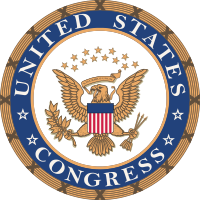 On October 19, two bipartisan bills allowing increased monitoring of online political advertising were introduced in the U.S. Congress. Companion bills House Resolution 4077, The Honest Ads Act, and Senate Bill 1989 direct the Federal Election Commission to enact rules for online advertisements similar to currents rules for television and radio. Larger digital platforms would be required to make available to the public requests to run political advertisements costing more than $500.
On October 19, two bipartisan bills allowing increased monitoring of online political advertising were introduced in the U.S. Congress. Companion bills House Resolution 4077, The Honest Ads Act, and Senate Bill 1989 direct the Federal Election Commission to enact rules for online advertisements similar to currents rules for television and radio. Larger digital platforms would be required to make available to the public requests to run political advertisements costing more than $500.
The bills were introduced by U.S. Representatives Derek Kilmer and Mike Coffman and Senators Amy Klobuchar, Mark Warner, and John McCain in response to “revelations that a Russian company purchased upwards of 3,000 political advertisements on Facebook in an effort to influence the 2016 Presidential election,” according to a press release by Kilmer.
“Our bipartisan bill makes sure our laws are as up to date as the latest technology, and makes it harder for foreign actors to use the internet to attack our democracy,” Kilmer said in his press release.
October 12, 2017 •
FEC Seeks Comments Concerning Internet Communications Disclaimers
On October 10, the Federal Election Commission (FEC) extended the comment period concerning internet communications disclaimers regulations to November 9. The FEC is specifically requesting comments addressing advertisements on internet-enabled applications and devices. Originally the FEC had published an Advance […]
 On October 10, the Federal Election Commission (FEC) extended the comment period concerning internet communications disclaimers regulations to November 9. The FEC is specifically requesting comments addressing advertisements on internet-enabled applications and devices.
On October 10, the Federal Election Commission (FEC) extended the comment period concerning internet communications disclaimers regulations to November 9. The FEC is specifically requesting comments addressing advertisements on internet-enabled applications and devices.
Originally the FEC had published an Advance Notice of Proposed Rulemaking seeking comment on October 13, 2011, and then again on October 18, 2016, “in light of legal and technological developments since [the 2011 notice] was published,” according to the FEC. This week, the Commission has decided to again reopen the comment period to receive additional comments once more because of technological changes since the last comment period ended.
The FEC is also seeking comments addressing “possible regulatory approaches that could minimize the need for serial revisions of regulations in order to adapt to new or emerging technologies,” according to the FEC notice of October 10.
Federal regulations require disclaimers identifying who paid for a political campaign communication and whether the communication was authorized by a candidate. The FEC is not proposing changes to any other rules adopted in the Internet Communications rulemaking of 2006.
September 14, 2017 •
President Nominates Trey Trainor for FEC Commissioner
On September 12, President Donald J. Trump nominated Trey Trainor to serve as a commissioner on the Federal Election Commission (FEC). Trainor is a lawyer licensed in Texas who specializes in election law, campaign finance, and ethics. Trainor previously served […]
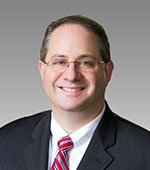 On September 12, President Donald J. Trump nominated Trey Trainor to serve as a commissioner on the Federal Election Commission (FEC). Trainor is a lawyer licensed in Texas who specializes in election law, campaign finance, and ethics. Trainor previously served in the president’s administration as a Special Assistant to the Secretary of Defense, James Mattis, in the Department of Defense, Office of General Counsel.
On September 12, President Donald J. Trump nominated Trey Trainor to serve as a commissioner on the Federal Election Commission (FEC). Trainor is a lawyer licensed in Texas who specializes in election law, campaign finance, and ethics. Trainor previously served in the president’s administration as a Special Assistant to the Secretary of Defense, James Mattis, in the Department of Defense, Office of General Counsel.
Last week it was announced Commissioner Matthew Spencer Petersen would be stepping down after being nominated by the president to serve as a District Judge on the U.S. District Court for the District of Columbia.
With the appointment of Trainor, and with Petersen’s absence, there will be three registered members of the Republican Party, one registered member of the Democratic Party, and one Independent, Chairman Steven T. Walther. One seat still remains vacant. The FEC requires at least four commissioners to agree for any official action.
To become a commissioner, Trainor must now be confirmed by the U.S. Senate.
September 7, 2017 •
Trump Nominates FEC Commissioner for Federal Judgeship
On September 7, President Donald J. Trump nominated Matthew Spencer Petersen, a commissioner with the Federal Election Commission (FEC), to serve as a District Judge on the U.S. District Court for the District of Columbia. Petersen, a Republican, is one […]
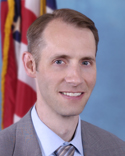 On September 7, President Donald J. Trump nominated Matthew Spencer Petersen, a commissioner with the Federal Election Commission (FEC), to serve as a District Judge on the U.S. District Court for the District of Columbia. Petersen, a Republican, is one of the five remaining FEC commissioners.
On September 7, President Donald J. Trump nominated Matthew Spencer Petersen, a commissioner with the Federal Election Commission (FEC), to serve as a District Judge on the U.S. District Court for the District of Columbia. Petersen, a Republican, is one of the five remaining FEC commissioners.
Without Peterson, the FEC will have only four of the six required commissioners serving, all with expired terms. With Petersen’s absence from the FEC there will remain two registered members of the Republican Party, one registered member of the Democratic Party, and one Independent, Chairman Steven T. Walther.
The FEC requires at least four commissioners to agree for any official action. A replacement for Petersen will be selected by the president and then confirmed by the U.S. Senate. No more than three members of the FEC may be registered with the same political party.
September 6, 2017 •
LNC File Suit Against FEC: Contribution Limits on Bequests
On September 5, the Libertarian National Committee (LNC) filed a lawsuit arguing federal contribution limits of bequests are unconstitutional. In Libertarian National Committee v. Federal Election Commission, filed in the U.S. District Court for the District of Columbia, the LNC […]
 On September 5, the Libertarian National Committee (LNC) filed a lawsuit arguing federal contribution limits of bequests are unconstitutional.
On September 5, the Libertarian National Committee (LNC) filed a lawsuit arguing federal contribution limits of bequests are unconstitutional.
In Libertarian National Committee v. Federal Election Commission, filed in the U.S. District Court for the District of Columbia, the LNC argues federal political contribution limits applied to bequests, in the absence of any evidence of corruption, violate the First Amendment of the U.S. Constitution. The LNC also claims Congress cannot regulate “the content of a political party’s expression under the guise of combating corruption.”
In 2014, the LNC was bequeathed $235,575 by a party contributor when he died. The Federal Election Commission’s position is the money must be dispersed in the amount of $33,900 a year. The LNC is asking its proposed facts and questions be certified to the en banc D.C. Circuit.
July 31, 2017 •
We the People Act of 2017 introduced in US Congress
On July 28, Rep. David E. Price introduced a 252-page bill which would reform campaign finance laws, amend the current federal lobbying laws, and address integrity and transparency problems in the Executive Branch. House Resolution 3537, We the People Act […]
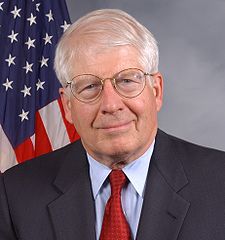 On July 28, Rep. David E. Price introduced a 252-page bill which would reform campaign finance laws, amend the current federal lobbying laws, and address integrity and transparency problems in the Executive Branch.
On July 28, Rep. David E. Price introduced a 252-page bill which would reform campaign finance laws, amend the current federal lobbying laws, and address integrity and transparency problems in the Executive Branch.
House Resolution 3537, We the People Act of 2017, is a comprehensive attempt to address issues such as federal lobbying, campaign finance, redistricting imbalances, and voter eligibility in order to focus on “major structural problems facing our democracy,” according to Price’s press release.
The law would change lobbying registration requirements and no longer exempt an individual who spends less than 20 percent of his or her time serving as a lobbyist for a particular client if he or she meets the other thresholds for registration. In addition, the legislation would require U.S. presidents to divest assets with potential conflicts of interest, require states to allow eligible individuals to register to vote on the same day of a federal election, and replace the Federal Election Commission with a new enforcement agency.
In the bill, other pending legislation currently in Congress dealing with ethics and transparency are referenced and incorporated. The bill also provides suggested solutions to be used in state and local legislative reform efforts.
State and Federal Communications, Inc. provides research and consulting services for government relations professionals on lobbying laws, procurement lobbying laws, political contribution laws in the United States and Canada. Learn more by visiting stateandfed.com.


